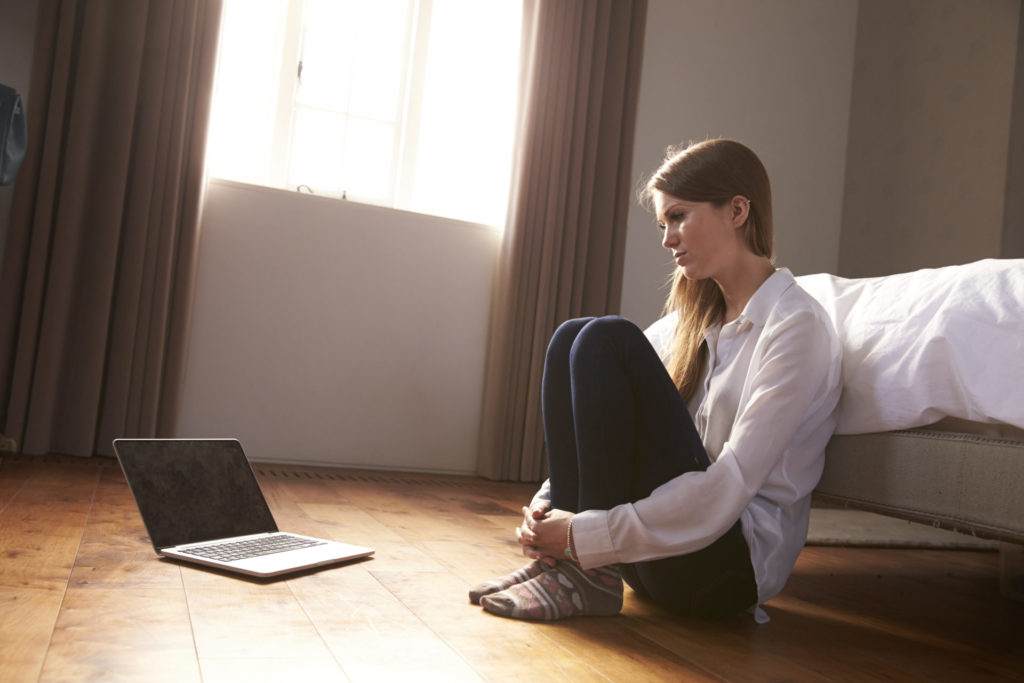Social media is a medium that most Australians use everyday. For girls and young women, these platforms have always been a part of their lives and proliferation of channels has been rapid. It’s hard to imagine this will change.
But while social media plays a crucial role in connecting us with our loved ones irrespective of geography, it’s also the culprit behind thousands of women being abused. In fact, according to a new landmark study by Plan International Australia, most girls in Australia have faced some form of harassment online and are now calling on social media companies to step in.
More than half of the 14,000 girls surveyed globally, (between the ages of 15- to 25) said they had been cyberstalked, sent explicit messages and images, or abused online. While a huge one in five respondents had, at one point, feared for their physical safety due to online threats.
The Free to Be Online? report explored experiences of girls across 22 countries, and found that most commonly young women were encountering abusive and insulting language, reported by more than half (59%) of girls, followed by deliberate embarrassment (41%), body shaming and threats of sexual violence (both 39%).
Globally, attacks were found to be most common on Facebook, where 39% had suffered harassment, followed by Instagram (23%), WhatsApp (14%), Snapchat (10%), Twitter (9%) and TikTok (6%).
Tino Munyanyiwa, a 20-year old youth activist for Plan International Australia says this has become the “harsh reality of girls and young women today,” including herself. “Personally, cyberstalking and spam insulting messages are nothing new to me,” she shares.

She adds that over time she’s learned to develop “a sixth sense that subconsciously accepts that type of behaviour as the norm”, acknowledging that “the most that can be done is blocking an individual due to the incomplete nature of the reporting systems.”
It’s this desperately inadequate system that PlA is working to overhaul, because online abuse gravely damages girls’ lives offline.
One in five (22%) of those surveyed reported that they or a friend had been left fearing for their physical safety, with a further one in three (39%) reporting it had caused low self-esteem, and 38 percent reporting mental and emotional stress. One in five (18%) said it caused problems at school.
Munyanyiwa says it’s incumbent on social media companies “to partner and work directly with the everyday users of their platforms that are victims of these situations. By doing so, they will be able to develop, test and actually put into action their new policies.”
“They also need to develop a mentality that prioritises safety over profit,” she says. “Individuals on social platforms have been narrowed down to just numbers, ‘users’ and ‘followers’. Social media has not only become a place to connect users but a platform for people to develop their businesses, share their knowledge, advocacy and activism as well as a source of inspiration.”
It’s a sentiment shared by PlA’s CEO Susanne Legena. “Everyone is accountable for keeping girls safe, from individuals to bystanders, to governments,” she says. “We’re starting our campaign to clean up the internet with the social media companies, because that is who girls have told us they want to respond to this, first and foremost.”
This campaign is the largest globally ever run, and feeds into a critical mass of voices calling for social media companies to make vast improvements to their platforms to protect girls, hear their suggestions and take concerns seriously.
“There are mechanisms on every platform to report abuse and harassment and indeed many of these social media giants have made vast improvements recently, but the reality is that abuse is endemic,” Legena says. “It is thriving under COVID-19 lockdowns, it’s global and almost universal in its nature, yet the consequences for those who perpetrate it are arbitrary and oftentimes non-existent.”
“Girls tell us that when they report, often clearly quite horrific offensive content is inexplicably deemed as acceptable and even when their attackers are banned, they’re back at it days later and often under the protection of anonymity. The system is broken and something needs to change.”


